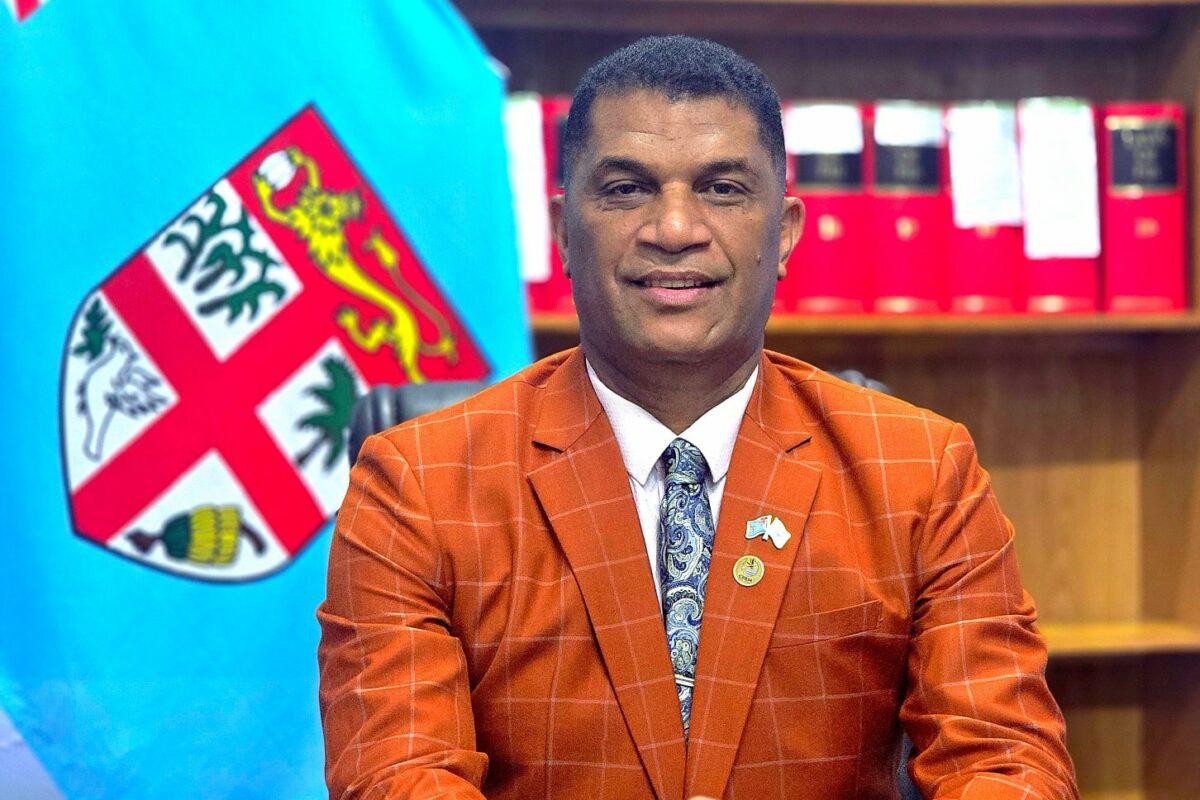The Honourable Prime Minister, Deputy Prime Ministers, Cabinet Ministers, Hon. Leader of Opposition, fellow Members of Parliament, Ladies and gentlemen.
Mr. Speaker Sir, I rise to provide a brief to this august House on key policy reforms currently being undertaken by the Ministry of Education, as we work to strengthen governance, accountability, and service delivery across the education sector.
In the current status, we often find requests coming from schools and stakeholders particularly parents and school managements that there are a lack of teachers in schools and these result in certain teachers being overladen with work on top of their own. As a result, at times a non- Maths teacher ends up teaching Maths and this results in difficulties for both the teacher and the school.
In other instances there is an oversupply of teachers, as such we need to adjust these anomalies and therefore school audits will be part of these policy changes.
As the Ministry continues to focus on improving access, quality, and equity in education, it has become increasingly important to address long-standing gaps and inefficiencies through clear and enforceable policy frameworks.
Mr Speaker Sir, today, I wish to highlight three critical areas of policy development:
(i) Ministry of Education Discipline Policy
(ii) The Teacher Transfer Policy
(iii) Teacher Appointments and Acting Appointments
Mr. Speaker Sir, the Ministry of Education is not excluded from the provisions of breaches and misconduct under Fiji’s public service regulations. Under the Civil Service Discipline Guideline, all staff in Government Ministries including temporary, contract, wage earners and permanent employees are subject to discipline processes.
Mr Speaker Sir, the Ministry is currently developing a comprehensive Discipline Policy that aims to address cases of misconduct by Heads of Schools, and MoE Teaching and Non-Teaching Staff.
It is no secret that past practices have often resulted in teachers who commit serious misconduct being simply transferred to another school or moved to headquarters, rather than being held accountable. This only serves to transfer the problem from one location to another, rather than resolving it, and in most cases, it has put students, schools, and the integrity of the education system at risk. Mr Speaker Sir, MoE is continuously working to address the anomalies raised to us on a regular basis.
Mr Speaker Sir, in developing the new Disciplinary Policy, the Ministry of Education proposes to anchor it firmly with the existing Civil Service Discipline Guidelines and the Civil Service (Discipline) Regulations, which already require that any action taken must be “prompt, transparent, fair and impartial, consistent,” with clear responsibilities, rights to response, and confidentiality safeguards.
In order to mitigate unresolved misconduct in the workplace from slipping through the system, the ministry will continue to develop and enhance policies to address misconduct that are usually handled by the Performance & Disciplinary Unit (PDU) of the Ministry. This is to ensure that our employees are empowered to perform their roles and responsibilities diligently.
The Ministry is taking steps in working towards restoring public confidence and trust in our education system. We are also ensuring that our schools and the work place are safe and accountable institutions.
𝗧𝗵𝗲 𝗧𝗲𝗮𝗰𝗵𝗲𝗿 𝗧𝗿𝗮𝗻𝘀𝗳𝗲𝗿 𝗣𝗼𝗹𝗶𝗰𝘆
Mr. Speaker, secondly the Teacher Transfer Policy plays a crucial role in mitigating teacher shortages in Fiji’s schools by enabling greater flexibility, responsiveness, and equity in staffing. This policy allows teachers who have served in one school for a tour to request or be considered for transfer.
The policy helps redistribute human resources where they are needed most. This allows the Ministry to address surplus teachers in some locations and shortages in others. For example, when a teacher retires, resigns or when fewer teachers are available in certain STEM subjects or remote schools.
Moreover, this policy includes annual transfer windows and formal procedures, so that movements happen in a planned, systematic way, reducing delays and gaps in school staffing. This means when schools in maritime or rural regions lose teachers, they are more likely to have replacements ready, reducing disruption to learning.
Mr Speaker Sir, this policy aligns directly with the Ministry of Education’s Strategic Plan (2023 2026) and the 2023 Denarau Declaration , as well as the National Development Plan 2025- 2029 and Vision 2050, and the SDG 4 , as these ensures quality, inclusive, and equitable education for all children in Fiji.
One of the strategic priorities is enhancing teacher welfare and improving teacher engagement, especially in remote and rural areas.
Mr Speaker Sir, by making transfer opportunities more predictable, transparent, and fair, the policy helps retain teachers, reduce attrition, motivate staff, and ensure that all schools no matter which location can access qualified teachers.
Mr. Speaker Sir, these policies on discipline, teacher management, and staffing form part of a broader effort to build a professional, accountable, and student-focused education system in Fiji. We are engaging with teachers, school leaders, teacher unions, community leaders, and other stakeholders to ensure that these policies are inclusive, practical, and effectively implemented.
Mr Speaker Sir, the Ministry of Education is committed to delivering not only access to education, but also quality education built on strong values, professional integrity, and equity for all.
𝗧𝗲𝗮𝗰𝗵𝗲𝗿 𝗔𝗽𝗽𝗼𝗶𝗻𝘁𝗺𝗲𝗻𝘁 𝗮𝗻𝗱 𝗔𝗰𝘁𝗶𝗻𝗴 𝗔𝗽𝗽𝗼𝗶𝗻𝘁𝗺𝗲𝗻𝘁 𝗣𝗼𝗹𝗶𝗰𝘆
The previous policy framework for appointments and acting roles lacked consistent processes across teaching and non-teaching sectors and did not adequately capture accountability mechanisms. This led to:
• Unclear approval pathways and delays in processing.
• Perceptions of favouritism and lack of merit-based decisions.
• In sufficient checks for disciplinary or performance issues prior to appointment.
These gaps presented not only operational inefficiencies but also risks to the integrity of our workforce. The appointment policy ensures that the right people are placed in the right roles, not by chance or convenience, but by merit and necessity. Our teachers and education officers deserve nothing less, and our students depend on it.
The revised policies for the ministry will include key features that will set guiding principles and standardized principles in order that would further strength these policies as an effective administrative tool. We will continue to undertake consultations with all the relevant stakeholders including the teacher unions in the formulation and the revision of the MoE policies.
The overall objective is to provide a conducive, friendly and more efficient and effective learning and teaching environment and therefore these policy gaps are crucial to eliminate the long-standing discrepancies that affect everyone and particularly disadvantages schools in the rural areas and maritime islands.
Thank you, Mr. Speaker Sir.

